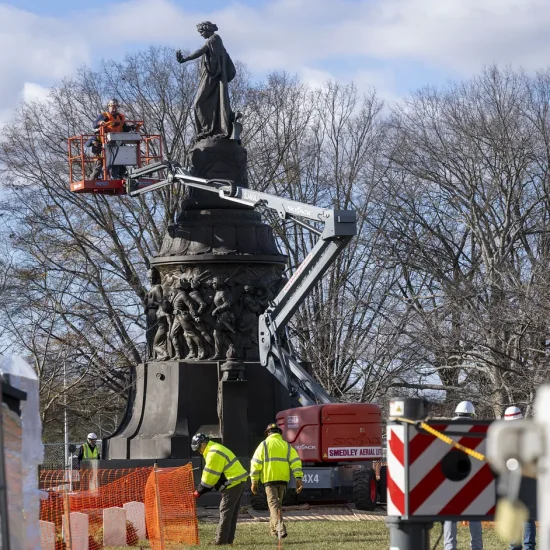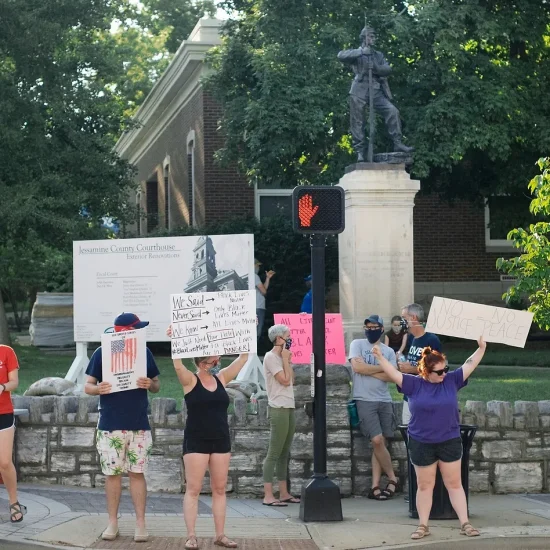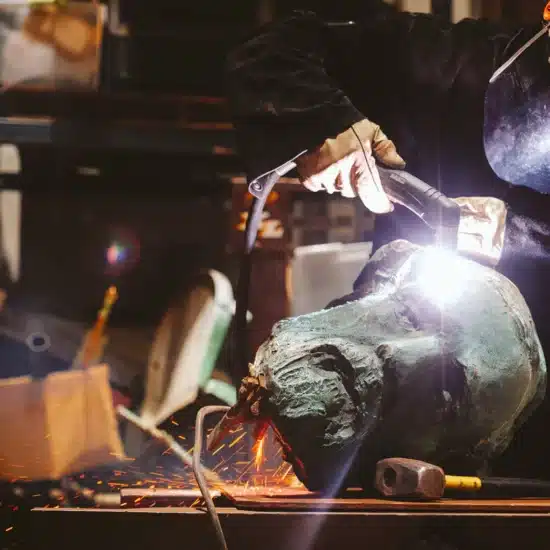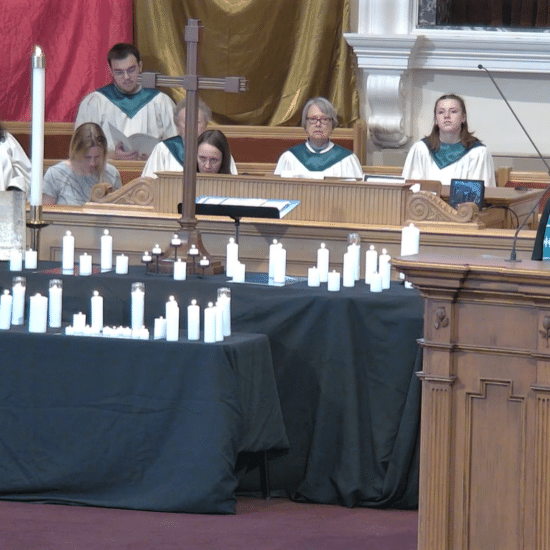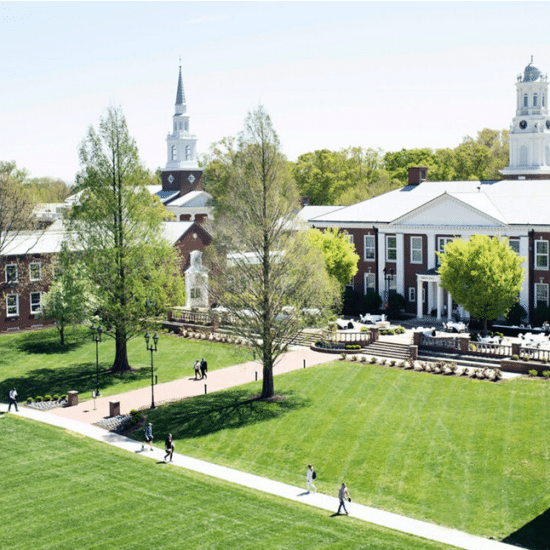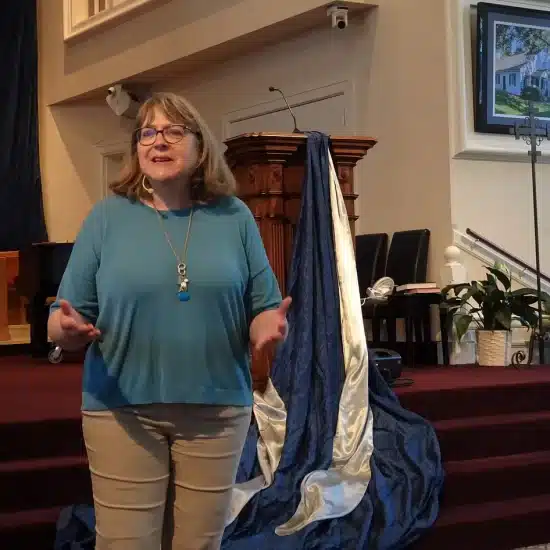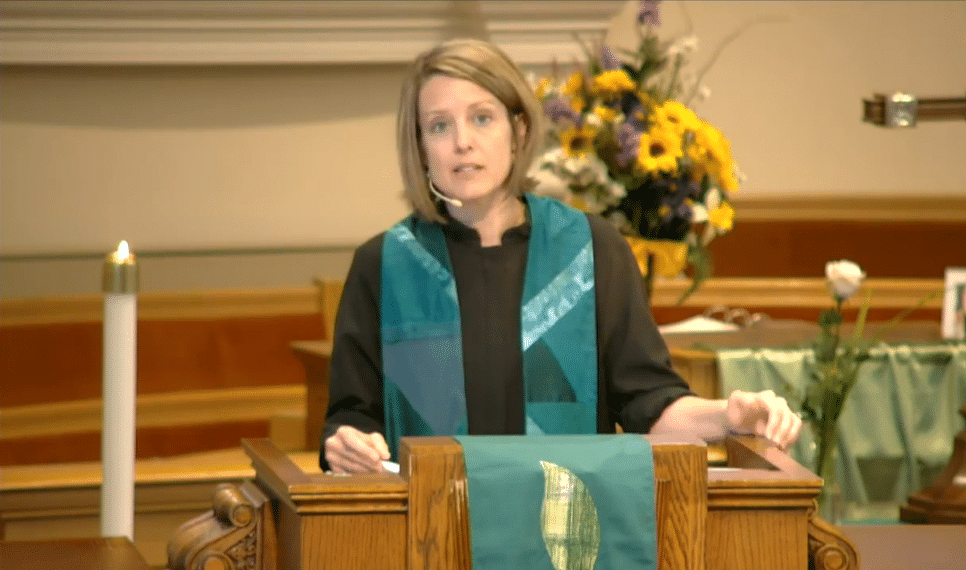
As Confederate statues across the country are defaced, toppled by protesters, and removed by officials, the incoming moderator of the Cooperative Baptist Fellowship on Sunday (June 14) urged Christians to back the removal of such monuments. Carol McEntyre, pastor at First Baptist Church in Columbia, Missouri, will assume the role of CBF moderator during the CBF general assembly next week — which is now a virtual event due to coronavirus.
“These Confederate monuments and symbols must come down!” McEntyre declared in her sermon. “I grew up in Tennessee. I love the South. Those Confederate memorials must go. White people all over this country who want to be anti-racist should support this work.”
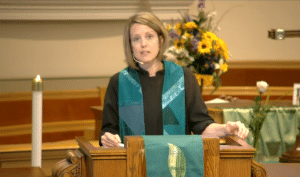
Screengrab of Carol McEntyre preaching at First Baptist Church in Columbia, Missouri, June 14, 2020.
McEntyre said that while Columbia had made progress in removing such symbols in recent years, she wanted to speak to the “broader country” on this topic. The city removed a Confederate monument on the county courthouse lawn in 2015, and renamed a school previously known as Robert E. Lee Elementary School. Both the courthouse and the school sit less than one-third of a mile from FBC.
McEntyre said the reasons behind the creation of the monuments justified their removal. Pointing to the “heyday of monument building” that came not right after the Civil War but in the period of 1890-1920, she noted that was also “a time of extreme racial violence — the era of lynching — as whites pushed back against the little progress that had been made by African Americans in the decades after the Civil War.” Thus, she said “these monuments were backlash — or, more aptly, whitelash — to the advancements being made by black Americans.”
In addition to being erected to support white supremacy, McEntyre said the Confederate monuments also “glorify” the hateful heritage of slavery and its violence.
“Any sincere student of history knows that the Civil War was not about state’s rights,” she explained. “It was about the right of states to own slaves!”
Preaching from Matt. 9 where Jesus had compassion on the harassed people and urged prayers for more workers to go into the harvest, McEntyre said that the Roman Empire in that time “was a great place to live unless you were a slave, a woman, a tenant farmer — people who had no rights or few rights — or a young man from a working-class family who could be called on at any time to fight in the military.”
McEntyre sees a similar situation today where people are harassed and there’s a need for more workers amid “the unclean spirits, the evil, the sickness that continues to plague our country.” This evil, she added, is “woven into the foundation of our country” with the “forced removal and massacre of Native people” and the wealth built from labor of enslaved persons.
“The Roman Empire was great for some — for the elite — but not for everyone,” she said. “Like the Roman Empire, our country works for some people, but many others are harassed like sheep without a shepherd.”
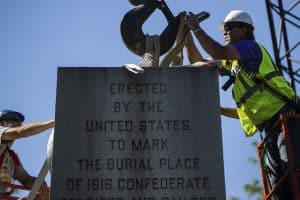
A monument dedicated to Confederate soldiers is dismantled from Garfield Park in Indianapolis, Indiana, June 8, 2020. (Mykal McEldowney/The Indianapolis Star via AP)
After mentioning the start of slavery in 1619 in the colonies that became the United States, she acknowledged there’s “no “silver bullet that will resolve 401 years of oppression.” Thus, while she admitted that removing Confederate monuments “is a small thing,” McEntrye said it’s an important step to continue the work of fighting racism.
“We know that removing Confederate statues from public places will not rid us of racism. There’s still so much work to do in public life” she said. “The demon of racism will not go willingly. For America to live up to her potential, it must be thrown out.”
“I believe Jesus is calling white Christian America to step up, to stand up,” she added. “Bold, costly actions are necessary. We have to sacrifice for this cause. This is too important for us to hold back any longer. The harvest is plentiful, but the workers are few.”

